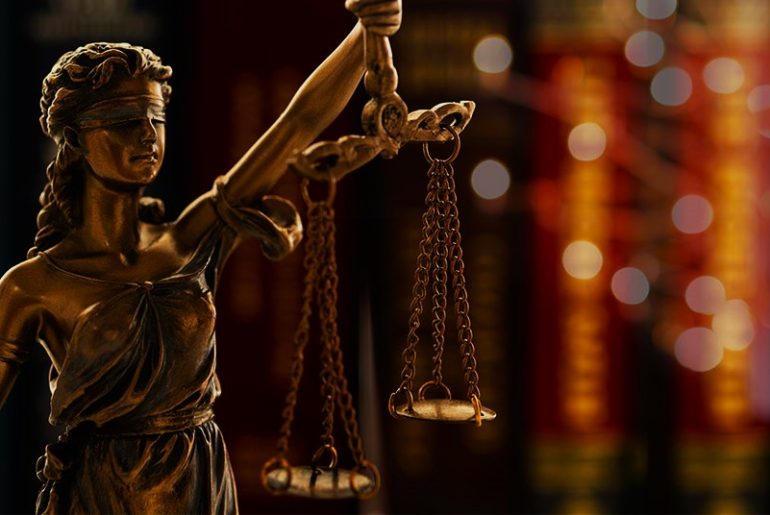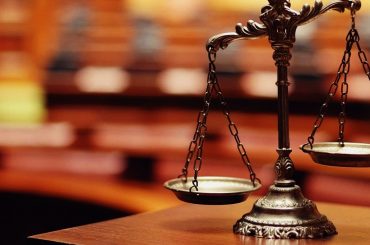In today’s society, the role of law enforcement is crucial in maintaining order and safety. However, there are instances where interactions with the police may not go as expected, leading to situations where you feel your rights have been violated or you’ve been subjected to misconduct. Such scenarios might include instances of excessive force, false arrest, or other forms of police misconduct. It’s in these circumstances that the question arises: how can you legally challenge these actions and seek justice?
The intent to sue the police in California is a significant legal step. It involves navigating through complex legal terrains, understanding your rights, and proving a breach of these rights or misconduct. This article aims to shed light on this process, offering insights into the legal framework surrounding such actions and the procedural steps involved in bringing a lawsuit against the police.
How to Understanding Your Rights?
When interacting with the police, it’s essential to be aware of your fundamental rights. These rights are designed to protect you and ensure fair treatment under the law. Understanding these rights can help you recognize situations where they may have been violated, potentially warranting legal action.
Basic Rights During Police Interactions:
- Right to Remain Silent: You have the right to remain silent to avoid self-incrimination. You can politely inform the officer that you choose to exercise this right.
- Right to Refuse Consent to a Search: Without a warrant, you generally have the right to refuse consent to search your person, car, or home. There are exceptions, but asserting this right is important.
- Right to a Lawyer: If you’re arrested, you have the right to an attorney. If you cannot afford one, the court must provide one for you.
- Protection Against Excessive Force: Police officers are only allowed to use the force necessary to control a situation. Excessive force is a violation of your rights.
- Protection Against Unlawful Arrest and Detention: You have the right to be free from unlawful arrest and detention. This includes being arrested without probable cause.
Scenarios Warranting Legal Action:
- Excessive Force: If an officer uses force beyond what is necessary for the situation, it may constitute excessive force. Examples include unjustified shootings, severe beatings, and unjustified use of tasers.
- Unlawful Arrest: Arresting someone without a warrant or probable cause (a reasonable basis for suspecting a person of a crime) can be grounds for a lawsuit.
- False Imprisonment: Detaining someone without legal justification is a violation of their rights.
- Racial Profiling or Discrimination: If an officer’s actions are motivated by racial or other discriminatory biases, this is a serious violation.
- Violation of Civil Rights: This broad category includes any action by police that infringes upon the rights guaranteed by the U.S. Constitution or state laws.
- Illegal Search and Seizure: Searches or seizures without a warrant or probable cause can violate your Fourth Amendment rights.

Before You Sue – Steps to Consider
Taking legal action against the police is a significant undertaking, requiring careful preparation and consideration. Before proceeding with a lawsuit, there are several crucial steps you should consider to strengthen your case and understand the full scope of your legal options.
Gathering Evidence:
- Document Everything: If you’ve had an encounter with the police that you believe warrants legal action, document every detail as soon as possible. This includes the date, time, location, and a detailed account of what occurred.
- Video and Audio Recordings: If there are any recordings of the incident (e.g., body cam, dash cam, cellphone videos, surveillance footage), make efforts to obtain them. They can be pivotal in substantiating your claims.
- Witness Statements: Identify and collect statements from any witnesses. Their accounts can provide crucial third-party perspectives on the incident.
- Medical Records: If the incident involved physical harm, secure all related medical records and reports. These documents can serve as evidence of the extent of your injuries.
- Police Reports: Obtain a copy of the police report, if one was filed. While this report may present the police’s version of events, it is still a crucial piece of evidence.
Filing a Complaint with the Police Department:
- Internal Complaint: Filing a formal complaint with the relevant police department is a recommended preliminary step. This action puts the department on notice and can initiate an internal investigation.
- Record of Complaint: Ensure you have a record or acknowledgment of the complaint filed. This can be useful in demonstrating that you pursued all available remedies.
- Potential Impact: While an internal complaint may not directly lead to disciplinary action or a resolution, it establishes a documented history of the incident.
Consulting with a Legal Professional:
- Seek Legal Advice: Consulting with an attorney, particularly one who specializes in civil rights or police misconduct, is crucial. They can provide a professional assessment of the viability of your case.
- Understanding the Legal Process: An experienced lawyer can guide you through the complex legal process and help you understand the challenges and requirements of suing the police.
- Evaluating Your Case: A legal expert can help in evaluating the strength of your evidence and advise you on the best course of action, whether it’s negotiation, settlement, or proceeding to trial.
- Knowledge of Laws and Precedents: Laws and legal precedents regarding police misconduct vary and can be complex. An attorney will be familiar with these and how they apply to your case.
Navigating the Legal Process
Filing a lawsuit against the police in California involves several key steps and an understanding of specific legal terms and challenges. Here’s a simplified overview:
Steps to File a Lawsuit:
- Consultation with an Attorney: Find a lawyer experienced in civil rights or police misconduct cases. They will evaluate your case and guide you through the legal process.
- Gathering and Reviewing Evidence: Work with your lawyer to collect and analyze all relevant evidence, including documentation of the incident and any injuries sustained.
- Filing a Claim: In California, before suing a government entity, you usually need to file a claim with the government agency within six months of the incident. Your lawyer will handle this.
- Filing a Lawsuit: If the claim is denied or not resolved, your attorney will file a lawsuit on your behalf. This involves preparing legal documents (a complaint) and submitting them to the court.
- Discovery Process: Both sides exchange information and evidence. This might include witness depositions, document requests, and interrogatories.
- Pre-Trial Motions and Settlement Discussions: Before trial, there may be legal arguments (motions) and attempts to settle the case out of court.
- Trial: If no settlement is reached, the case goes to trial where a judge or jury will decide the outcome.
Key Legal Terms:
- Statute of Limitations: This is the deadline for filing a lawsuit. In California, for most cases against the police, you have six months from the date of the incident to file a government claim, which is a prerequisite for a lawsuit.
- Burden of Proof: This term refers to the responsibility to prove the allegations made. In a lawsuit against the police, the plaintiff (the person suing) usually has the burden of proof, meaning they must provide sufficient evidence to prove their claims.
Challenges in Suing Government Entities:
- Government Immunity: Some laws protect police and other government entities from being sued for certain actions performed during official duties. Your lawyer can advise you on how this applies to your case.
- Public Perception: Cases against the police can attract public and media attention, potentially influencing the perception of the case.
- Complex Legal Procedures: Suing the police involves navigating complex legal procedures and dealing with robust defense tactics by government attorneys.
- Emotional and Financial Strain: Such lawsuits can be lengthy and emotionally draining. They may also require significant financial resources.
Finding Legal Representation
When considering legal action against the police, having the right attorney is crucial. Here’s a guide on how to find and choose an attorney specializing in cases against the police, along with information on pro bono lawyers and legal aid for those who might face financial constraints.
How to Find a Specialized Attorney?
- Research: Start by researching attorneys who specialize in civil rights or police misconduct cases. You can use online legal directories, bar association websites, or referrals from friends and legal aid societies.
- Check Experience and Track Record: Look for attorneys who have experience specifically in handling cases against the police. Review their track record in similar cases, including any settlements or verdicts.
- Initial Consultation: Most attorneys offer a free initial consultation. Use this opportunity to discuss your case, understand their approach, and gauge their expertise.
- Assess Compatibility: It’s important that you feel comfortable with your attorney. Assess their communication skills, willingness to explain legal concepts, and overall commitment to your case.
- Discuss Fees: Understand how the attorney charges fees. Some work on a contingency basis (they get paid only if you win), while others might charge hourly or flat fees.
Pro Bono Lawyers and Legal Aid:
- Pro Bono Lawyers: These are attorneys who offer their services for free or at a reduced cost to those who cannot afford legal representation. You can find pro bono lawyers through legal aid organizations, law school clinics, and bar associations.
- Legal Aid Societies: Legal aid organizations provide free legal services to low-income individuals. They can assist with finding a lawyer who is experienced in cases against the police and willing to work at reduced or no cost.
- Other Resources: Some non-profit organizations and advocacy groups also provide legal assistance or can refer you to lawyers who take cases involving police misconduct.
Importance of Legal Aid:
- Legal aid and pro bono services play a crucial role in ensuring access to justice, especially for individuals who lack the financial resources to hire private attorneys.
- They can provide valuable legal advice, representation in court, and assistance in navigating the legal system.
What to Expect?
Pursuing a lawsuit against the police can be a complex and demanding process. Understanding what this entails is important for setting realistic expectations. Here’s an overview of the key aspects:
Time Commitment:
- Lengthy Process: Legal actions against police departments can take a significant amount of time, often several months to years. The process includes filing the lawsuit, discovery, potential settlement negotiations, and possibly a trial.
- Stages of the Case: Each stage, from gathering evidence to the trial, can be time-consuming. Patience and a long-term perspective are essential.
Emotional Toll:
- Stress and Emotional Impact: Such lawsuits can be emotionally taxing. Confronting law enforcement in court, recounting potentially traumatic experiences, and the uncertainty of the legal process can be stressful.
- Public and Personal Life: If the case gains public attention, it might impact your personal life and privacy. Be prepared for possible media coverage and public scrutiny.
Financial Aspects:
- Legal Costs: Legal expenses can accumulate, especially in prolonged cases. These include attorney fees, court costs, and expenses related to gathering evidence.
- Contingency Basis: Some attorneys work on a contingency basis, where they get paid only if you win the case. This can alleviate upfront costs but consider the percentage they will take from any settlement or award.
- Cost-Benefit Analysis: Weigh the potential benefits of the lawsuit against the costs, both financially and emotionally.
Possible Outcomes:
- Settlement: Many cases are settled out of court. A settlement can provide compensation without the uncertainties of a trial but may involve compromise.
- Going to Trial: If the case goes to trial, the outcome is decided by a judge or jury. Trials can lead to higher compensation but are more unpredictable and usually more demanding.
- No Guarantee of Success: There’s always a risk of not succeeding in the lawsuit, which could mean no compensation and the responsibility for legal fees.
- Change and Accountability: Beyond personal compensation, your lawsuit could contribute to broader changes in police practices and accountability.
Alternative Dispute Resolution
Mediation and Arbitration as Alternatives:
- Mediation: This is a voluntary process where a neutral third party (mediator) helps both sides come to a mutually agreeable solution. It’s less formal than a court trial and can be more collaborative.
- Arbitration: Here, a neutral third party (arbitrator) listens to both sides and makes a binding decision. It’s more formal than mediation but still less so than a trial.
Pros and Cons:
- Pros:
- Cost-Effective: Generally, these methods are less expensive than going to trial.
- Faster Resolution: They often lead to a quicker resolution.
- Privacy: Mediation and arbitration are private processes, unlike a public trial.
- Control: Parties have more control over the outcome, especially in mediation.
- Cons:
- Limited Discovery: There’s less opportunity for each side to gather evidence from the other.
- Potentially Binding: In arbitration, the decision is usually binding and harder to appeal.
- May Lack Formality: Some cases, particularly those involving serious allegations, may benefit from the formal legal procedures of a trial.
Protecting Yourself and Your Rights
Interacting with Law Enforcement:
- Stay Calm and Respectful: Keep interactions with police officers calm and respectful, even if you believe they are in the wrong.
- Know Your Rights: Be aware of your rights, such as remaining silent and not consenting to a search without a warrant.
- Document Interactions: If you feel your rights are being violated, try to document the interaction if it is safe to do so.
Staying Informed:
- Educate Yourself: Regularly educate yourself about changes in laws and your rights.
- Seek Legal Advice When Necessary: If you’re unsure about your rights or a legal situation, consult with a lawyer.
- Community Resources: Utilize community resources, workshops, or legal clinics to stay informed.
Conclusion:
Navigating the complexities of suing the police in California can be daunting, but understanding the process, your rights, and available options is empowering. Whether through traditional litigation, alternative dispute resolution, or proactive self-education and interaction with law enforcement, it’s crucial to be informed and prepared. Remember, in legal matters, particularly those involving police conduct, the guidance of an experienced attorney is invaluable. Through knowledge and the right support, individuals can effectively advocate for their rights and seek justice.





1 Comment
Attractive component of content. I simply stumbled upon your
blog and in accession capital to claim that I get actually loved account your blog posts.
Anyway I will be subscribing for your augment or
even I fulfillment you get entry to constantly rapidly.